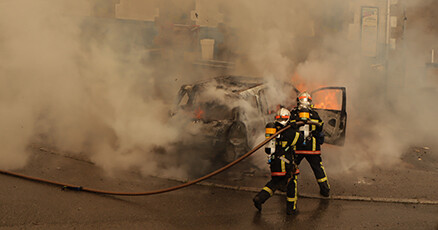The short answer is yes; the California workers’ compensation system benefits employees and eligible volunteers for work-related injuries or illnesses. Volunteer firefighters are among this group who are eligible.
 For workers’ compensation benefits, California law views volunteer firefighters as having the same status as employees. So if a volunteer firefighter is injured while performing job-related duties, they may be entitled to medical treatment, disability benefits, and all of the other benefits that the system offers to regular employees in California, such as coverage of medical expenses, lost wages, and any needed rehabilitation costs.
For workers’ compensation benefits, California law views volunteer firefighters as having the same status as employees. So if a volunteer firefighter is injured while performing job-related duties, they may be entitled to medical treatment, disability benefits, and all of the other benefits that the system offers to regular employees in California, such as coverage of medical expenses, lost wages, and any needed rehabilitation costs.
Learn more about our Sacramento Workers’ Compensation Attorney Services.
Volunteer Firefighters: The Risk Is High
Volunteer firefighters face the same risk of injuries as paid firefighters. And though the specific responsibilities that volunteer firefighters are charged with may differ slightly depending on department, region, or state, the fact remains that it is just as possible for a volunteer firefighter to be injured on the job as a paid employee. Here are 12 common injuries that firefighters, including volunteers, may face:
- Burns: Thermal burns from direct exposure to flames and hot surfaces.
- Smoke inhalation: Toxic smoke and gases that can lead to respiratory problems, including permanent lung damage and carbon monoxide poisoning.
- Heat exhaustion: Extreme-temperature conditions can result in dehydration, heatstroke, and heat exhaustion.
- Sprains and strains: Musculoskeletal injuries are some of the most common on-the-job injuries for firefighters and often result from lifting heavy equipment, climbing or walking on uneven or damaged surfaces, and carrying victims.
- Back injuries: Back strains, pulled muscles, herniated discs, and other spinal injuries are common among firefighters.
- Fractures: Tripping or slipping, falls, and collapsing structures are frequent causes of broken bones and fractures.
- Cuts and lacerations: Firefighters frequently encounter broken glass in structure fires, leading to cuts and more severe lacerations requiring stitches or surgical tendon repair.
- Traumatic injuries: Due to the unstable conditions in structure fires, as well as limited visibility and agility due to smoke and gear, incidents with vehicles, falling debris, or explosions can cause severe traumatic injuries, including brain trauma.
- Smoke and chemical exposure: Exposure to hazardous substances can cause chemical burns, including to the eyes, and other long-term health issues.
- Electrical injuries: Firefighters often encounter live wires or damaged electrical systems that can cause electrical shocks and burns.
- Cardiac events: Firefighting’s physical exertion and stress can increase the risk of heart attacks and cardiac events.
- Psychological trauma: Firefighters may experience post-traumatic stress disorder (PTSD) or other psychological conditions due to witnessing traumatic events.
The Fine Print
Workers’ compensation laws can vary depending on the industry or jurisdiction, which means there could be specific requirements or other qualifications that a volunteer firefighter needs to meet to be eligible for coverage. To get a clear picture of particular criteria, volunteer firefighters should ask the administration of their local fire department where they are volunteering or a legal professional.
An experienced workers’ compensation attorney, like those at Eason & Tambornini, can help you if you’ve been injured. Call Eason & Tambornini today at (916) 438-1819 for a free, no-obligation consultation.
